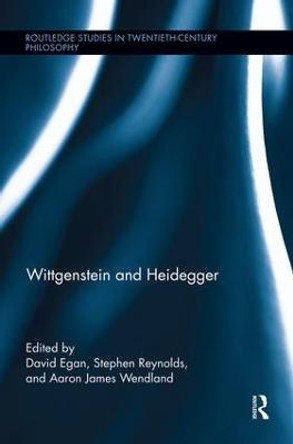Superficially, Wittgenstein and Heidegger seem worlds apart: they worked in different philosophical traditions, seemed mostly ignorant of one another's work, and Wittgenstein's terse aphorisms in plain language could not be farther stylistically from Heidegger's difficult prose. Nevertheless, Wittgenstein's Philosophical Investigations and Heidegger's Being and Time share a number of striking parallels. In particular, this book shows that both authors manifest a similar concern with authenticity. David Egan develops this position in three stages. Part One explores the emphasis both philosophers place on the everyday, and how this emphasis brings with it a methodological focus on recovering what we already know rather than advancing novel theses. Part Two argues that the dynamic of authenticity and inauthenticity in Being and Time finds homologies in Philosophical Investigations. Here Egan particularly articulates and defends a conception of authenticity in Wittgenstein that emphasizes the responsiveness and reciprocity of play. Part Three considers how both philosophers' conceptions of authenticity apply reflexively to their own work: each is concerned not only with the question of what it means to exist authentically but also with the question of what it means to do philosophy authentically. For both authors, the problematic of authenticity is intimately linked to the question of philosophical method.
About the AuthorBorn and raised in Vancouver, Canada, David Egan has lived and studied in Canada, the USA, the UK, and Germany. He received his DPhil from the University of Oxford in 2012, working under the supervision of Stephen Mulhall. He has taught at Oxford, McMaster University, the University of Chicago, and Hunter College. He is co-editor (with Stephen Reynolds and Aaron James Wendland) of Wittgenstein and Heidegger (Routledge 2013) and has published articles on Wittgenstein, Heidegger, Austin, and the philosophy of literature. David leads a second life as a playwright and has had work produced in Canada, the USA, and the UK.
ReviewsThroughout, Egan demonstrates a strong knowledge of primary and secondary literature ... His writing style is good -- clear and pleasant to read (high praise when dealing with these figures) -- and his use of German often clarifies passages. There were a number of discussions I found quite helpful and illuminating, and I believe that most scholars interested in the subject will as well. * Lee Braver, University of South Florida, Journal of the History of Philosophy *
Book InformationISBN 9780198832638
Author David EganFormat Hardback
Page Count 272
Imprint Oxford University PressPublisher Oxford University Press
Weight(grams) 444g
Dimensions(mm) 218mm * 146mm * 20mm





